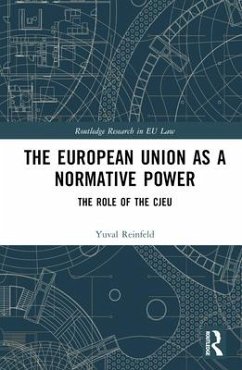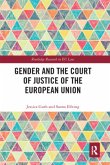Examining the role of the CJEU in shaping the European Union as a Normative power, this book explores the influence of the Court of Justice of the European Union on Normative Power Europe to evaluate the extent to which the CJEU's actions consolidate normative foreign policy in third states. Combining perspectives from international relations and law, it explores the EU's normative impact in the international arena, offering a multidimensional view which characterizes the power of the EU as a normative power while examining its role as a regulatory power alongside a historical review of the legal doctrinal development of the CJEU. Distilling the EU's uniqueness in the international arena and emphasizing that its fundamental strength lies in the technical normative power approach, the book argues that the genuine EU impact is emphasized in unique sectoral niches noting the EU's dominance in terms of agriculture, environmental protection, privacy, and data protection or tech policies- a classic technical normative power that combines a legal basis and a value base.
The book analyses several case studies which present the triangular relations between CJEU rulings, EU institutions, and third countries to identify both direct and indirect signs of a genuine normative effect. Taking an interdisciplinary approach, this book will be of interest to academics and students researching aspects of European law, international law, or international relations.
The book analyses several case studies which present the triangular relations between CJEU rulings, EU institutions, and third countries to identify both direct and indirect signs of a genuine normative effect. Taking an interdisciplinary approach, this book will be of interest to academics and students researching aspects of European law, international law, or international relations.








